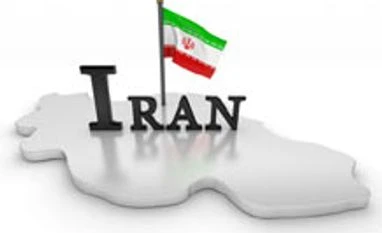"We are a few metres...From the finishing line, but we are well aware that the final metres are the hardest," French Foreign Minister Laurent Fabius told reporters, as he arrived back in Switzerland to rejoin the negotiations.
The stakes were very high, he said, adding at issue was the question of non-proliferation, and "Iran's reintegration into the international community."
Also Read
A US official confirmed Kerry held four hours of late-night talks with his Iranian counterpart Mohammad Javad Zarif and EU deputy foreign policy chief Helga Schmid, adding to days of already bruising negotiations.
In back-to-back talks, the top US diplomat then went straight into a meeting with Fabius and German Foreign Minister Frank-Walter Steinmeier, before just a few minutes later resuming negotiations with Zarif and Schmid.
"Iran has shown its readiness to engage with dignity and it's time for our negotiating partners to seize the moment," Zarif told reporters earlier.
Iran had shown it wants "an entente" with the world, but it "will not accept submitting to force and excessive demands," Zarif said.
After 18 months of intense negotiations, it remained unclear if the six world powers and Iran will pin down the main contours of a deal to put a nuclear bomb out of Iran's reach.
The aim is to turn this into a comprehensive accord backed by specific technical commitments by June 30 when an interim deal struck in November 2013 -- which saw Iran freeze certain nuclear activities in return for minor sanctions relief -- expires.
Success would end a 12-year-old standoff. Failure may set the United States and Israel on a road to military action to thwart Iran's nuclear drive.
The White House said the talks were still "productive" and progress was being made.,
"But if we are in a situation where we sense that the talks have stalled then yes, the United States and the international community is prepared to walk away," said White House spokesman Josh Earnest.
Despite missing Tuesday's midnight deadline, Russian Foreign Minister Sergei Lavrov had raised hopes of "an agreement in principle on all key aspects of the final settlement" before leaving yesterday.
You’ve reached your limit of free articles this month.
Subscribe now for unlimited access.
Already subscribed? Log in
Subscribe to read the full story →

Smart Quarterly
₹900
3 Months
₹300/Month
Smart Essential
₹2,700
1 Year
₹225/Month
Super Saver
₹3,900
2 Years
₹162/Month
Renews automatically, cancel anytime
Here’s what’s included in our digital subscription plans
Access to Exclusive Premium Stories
Over 30 subscriber-only stories daily, handpicked by our editors


Complimentary Access to The New York Times
News, Games, Cooking, Audio, Wirecutter & The Athletic
Business Standard Epaper
Digital replica of our daily newspaper — with options to read, save, and share


Curated Newsletters
Insights on markets, finance, politics, tech, and more delivered to your inbox
Market Analysis & Investment Insights
In-depth market analysis & insights with access to The Smart Investor


Archives
Repository of articles and publications dating back to 1997
Ad-free Reading
Uninterrupted reading experience with no advertisements


Seamless Access Across All Devices
Access Business Standard across devices — mobile, tablet, or PC, via web or app



)
